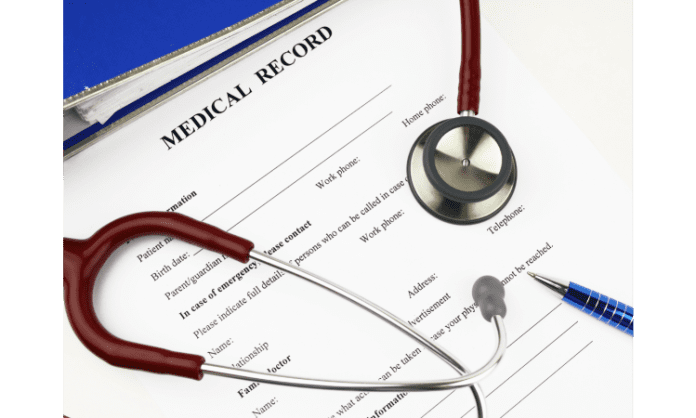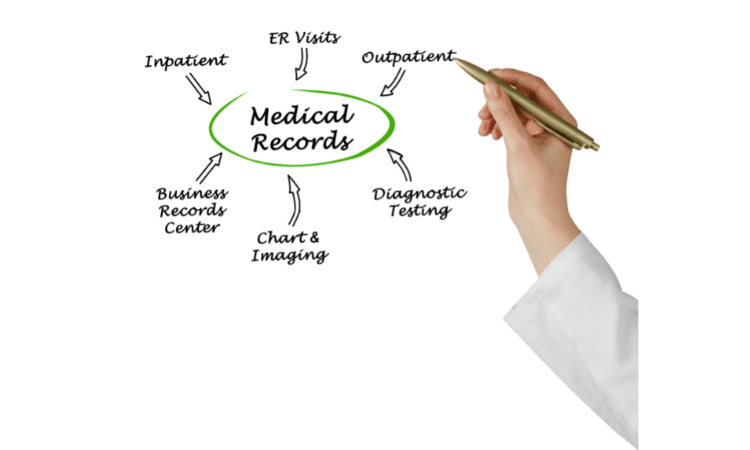
Sometimes your doctor will give you a copy of your medical records. However, if you don’t get a copy, or if you think the information in your record is incorrect, you can request one. Here’s what to do:
The importance of medical records is often understated, but it is difficult to overstate how important they are for patients, providers and health care organizations.
Patients rely on their medical records for many reasons: to keep track of their own health, monitor the medications they’re taking and identify allergies, conditions and diseases that may impact them in the future; to determine what insurance benefits are available; to ensure that test results are accurate; and even as evidence if a patient needs legal help.
Health care providers also rely on access to patient medical records as part of their daily work. For example, doctors use these documents when prescribing treatment plans or referring patients for specialty care. In addition, hospitals use them during billing procedures while insurers review them when determining coverage eligibility or claim reimbursement amounts.
How can I get my medical records?

You can request your medical record in the following ways:
- Call the doctor’s office and ask for your medical records.
- Call the hospital and ask for your medical records.
- Contact the medical records department of a local hospital or healthcare provider (this may be separate from patient services).
- Check with your state’s department of health or state attorney general’s office; some states have laws requiring doctors to provide patients with copies of their own charts within 30 days after receiving such requests, free of charge or payment. You may also contact a statewide organization (such as an association) that represents physicians in order to find out if any resources are available regarding obtaining copies of their own health records from private practitioners or hospitals within their jurisdiction(ies).
What’s in my medical record?

Your medical record is an important piece of the puzzle in understanding your health. It contains:
- Your medical history, including test results and diagnoses
- Medications you’re taking, allergies, and other medication-related information
- The results of tests and procedures you’ve had done (e.g., blood pressure readings)
- Any consultations with specialists or other healthcare providers
Who owns my medical record?

You own your medical record. You can give permission to others to access it, including health care providers, attorneys, insurance companies and researchers.
It is important that you keep a list of all the people with whom you have shared your medical history and any identifying information about them (name, address and phone number). This will help if there is ever an error in your record or a breach of privacy by someone else who has seen it.
You have the right to ask for a copy of your complete medical record from any doctor who has treated you during the last 5 years or longer if he or she chooses not to provide it on request. If possible, it’s best to make this request in person so that the doctor can answer any questions you may have about what was written down before giving him/her permission to release copies of documents (which should be limited).
Why are my medical records important?

Medical record access is important for several reasons. First, they’re essential to your long-term health. As we age, our bodies change and require different medical interventions or medications. It’s imperative that you have easy access to your past health history so that you can be informed about how these changes affect your current condition and what steps need to be taken in order to maintain good health throughout life.
Secondly, it’s important for family members as well. If a person in the family has some type of chronic illness or genetic condition (e.g., high blood pressure), it’s helpful for everyone else in the family (who may not have this problem) to know about it so they know how best to care for themselves and their loved one who has been diagnosed with this condition
What happens if I don’t have access to my medical records?

If you don’t have access to your medical records, you’re at risk for not getting the right treatment. You could be prescribed the wrong medication or dosage, and this could lead to complications in your health. You also won’t be able to get the right diagnosis or referral if you don’t have access to information about past tests and procedures that may help in diagnosing a condition. If you can’t get a proper diagnosis or referral early on, it will likely lead to more severe problems down the line, which will make any treatment more difficult and expensive.
Not only does lack of access affect how effective treatments are for patients with chronic conditions; it can also put patients at-risk for identity theft because their personal information may not be protected appropriately by hospitals or other healthcare providers that aren’t following HIPAA guidelines.
Your doctor can help you get your medical records.

You can request your medical records from the doctor or hospital that treated you. If your doctor gives you the runaround, contact the state medical board.
Your doctor should tell you how to get a copy of your medical records in a timely manner once they have received your written request. Some states require a specific time limit for providing copies of records (for example, within 30 days). Your doctor may not be able to give you copies of all types of records such as billing statements, prescriptions and lab results unless they are related to treatment or diagnosis at their facility.
In an emergency situation where someone’s life is threatened by an illness or injury and immediate care is needed, it’s important that doctors can provide care without worrying about whether their patients will understand what information has been shared with them and how it will be used by other health professionals involved in treating them later on down the road.”
Conclusion
Medical records are a valuable tool for both patients and doctors in providing the best possible care to patients. Because your medical record contains important information about your health, it’s critical that you know what information is contained within it. You should also be aware of who owns your medical record, since some providers may try to restrict access to these records or prevent you from getting copies of them. Knowing how to get a copy of your medical record can help ensure that you receive the best possible care.











